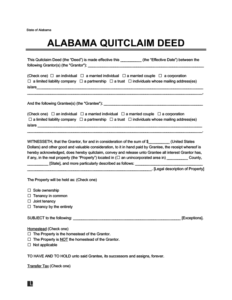When someone passes away, their estate is managed by personal representatives, either by the terms of their will or the state laws that control specific successions. An executor is a specific type of personal representative designated in a person’s will to carry out their final wishes and distribute their property. A financial advisor can act as an executor in addition to being a useful resource during the estate planning process. In this article, we’ll clarify what personal representative vs. executor means, the difference, and which is required for estate planning.
What’s a Personal Representative?
Whether the deceased made a will or not, personal representatives are responsible for managing the division of their assets and taking care of their financial matters.
An executor, as appointed by the deceased, is the personal representative in the event of a will. In situations when a will is absent, the court appoints a personal representative.
A personal representative should be competent in managing administrative and legal responsibilities, well-organized, and financially responsible. Acting in the best interests of the estate and its beneficiaries, they must make sure that the assets are divided equitably and in compliance with the law. To carry out this complicated and frequently legal assistance-requiring duty, personal representatives must have a complete understanding of their responsibilities.
Personal Representative Types
Although there are many various kinds of personal representatives, such as trustees, conservators, and legal guardians, the phrase is most frequently used to describe two specific positions in an individual’s estate: executors and administrators.
The selection process differs for the Personal Representative and executor even though their responsibilities are essentially the same.
Executors
An executor is a person appointed by the deceased to administer their estate and carry out their last intentions; they are frequently mentioned in the will of the deceased. They are in charge of managing the deceased’s belongings, attending to debts, and allocating the residual assets to beneficiaries by the terms specified in the will.
Administrators
In contrast, an administrator is a personal representative designated by the court in cases when there is no will, a valid will, or no executor identified. Administrators allocate the inheritance by intestacy succession laws, which are state laws, as opposed to executors who carry out the wishes of the testator. Their main responsibility is to ensure that the estate of the deceased is distributed legally and efficiently.
What to Expect from a Personal Representative
The personal representative must abide by the deceased’s last will if one existed. To do this, it may be necessary to locate and value assets, pay off debts, and distribute assets to beneficiaries by the will’s language or the state’s intestate laws.
Honesty and transparency are essential. It is necessary for personal representatives to carefully document every financial transaction about the estate. This means that in addition to routinely updating beneficiaries, it also involves monitoring earnings, expenses, and taxes.
Furthermore, personal representatives have a fiduciary duty to act in the best interests of the estate and its beneficiaries. They have to make wise financial judgments and stay out of conflicts of interest.
Finally, a personal representative needs to be ready for any court cases that may arise. The personal representative may need to defend their acts in court if beneficiaries or creditors question the administration of the estate.
Difference Between Personal Representative vs. Executor
Although “administrator” and “executor” are sometimes used synonymously, there is a small distinction between the two.
An administrator is anyone chosen to oversee a deceased person’s estate matters.
An executor is a particular kind of administrator in a person’s will to oversee their estate following death. The executor is in charge of enforcing the will’s provisions. Although administrators are not necessarily executors, executors are always administrators. The particular obligations vary based on the jurisdictional laws and the conditions of the estate.
Personal Representative vs. Executor: FAQs
What term does one use to refer to a personal representative?
An executor or executrix was the term used to describe someone appointed to manage an estate. Whether a person is designated in the absence of a will or is listed in one, the term “personal representative” now applies.
Is personal representative vs administrator the same thing?
Administrators and personal representatives are synonymous phrases that refer to the same thing. The word “administrator,” on the other hand, is more precise and denotes an intestate death.
What is the difference between a personal representative vs executor in California?
A specified personal representative named in a will as an executor is responsible for carrying out the testator’s last instructions and allocating their assets. A financial advisor can act as an executor in addition to being a useful resource during the estate planning process.
Which of the following qualities should a personal representative have?
Sound financial judgment. good sense. strong moral character. Strong communication abilities (both for interacting with the estate owner while they are living and corresponding with beneficiaries and family after the estate owner passes away).
Conclusion on Personal Representative vs. Executor
Understanding the responsibilities of personal representatives, including executors and administrators, is essential in the ever-evolving field of estate planning. Their functions are essential to the equitable distribution of resources. In addition to making sure the deceased’s wishes are honored or an estate is handled by state law, personal representatives try to head off any potential disagreements among beneficiaries.



